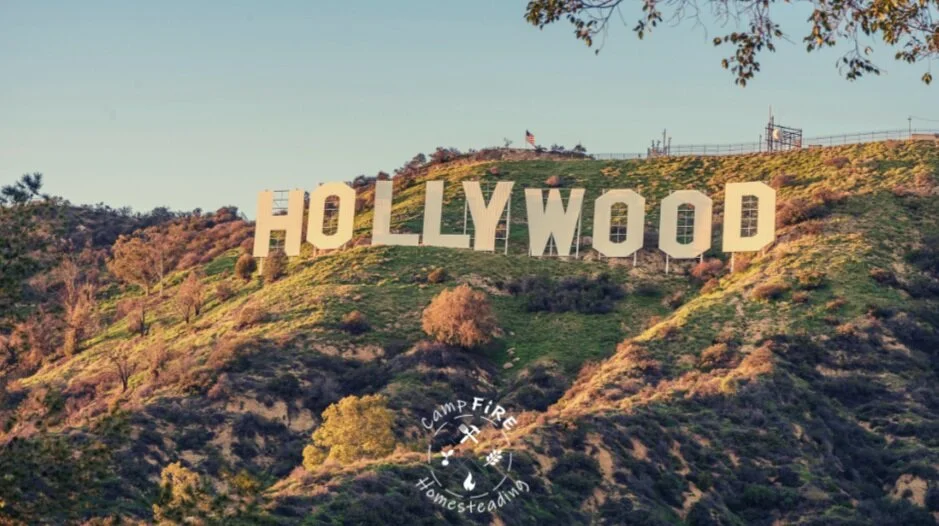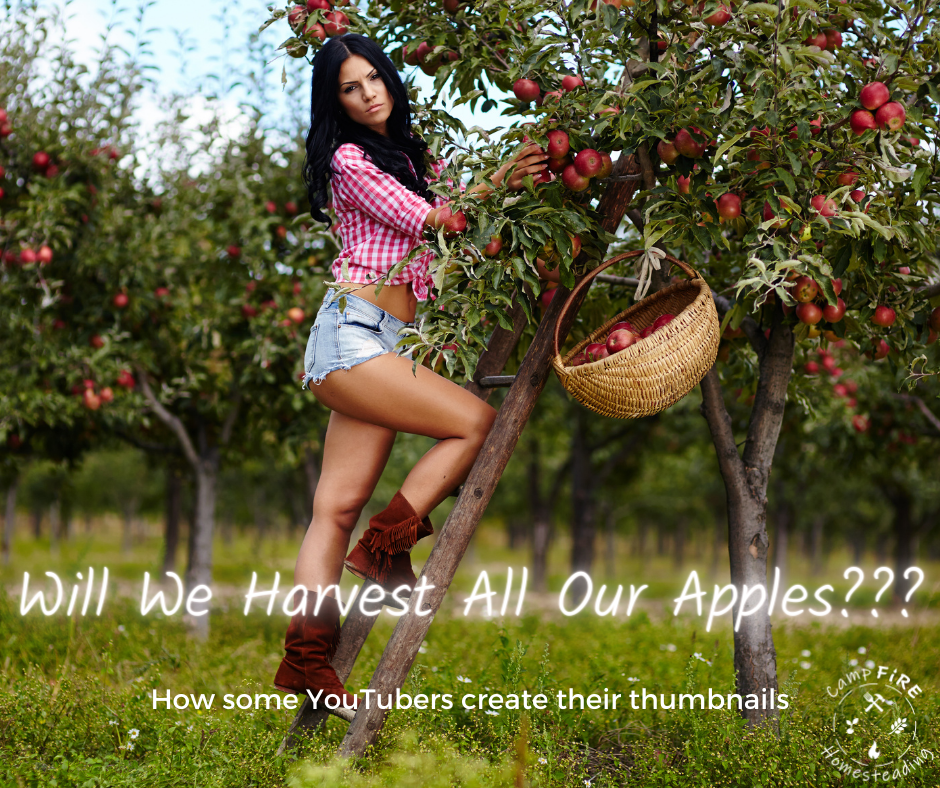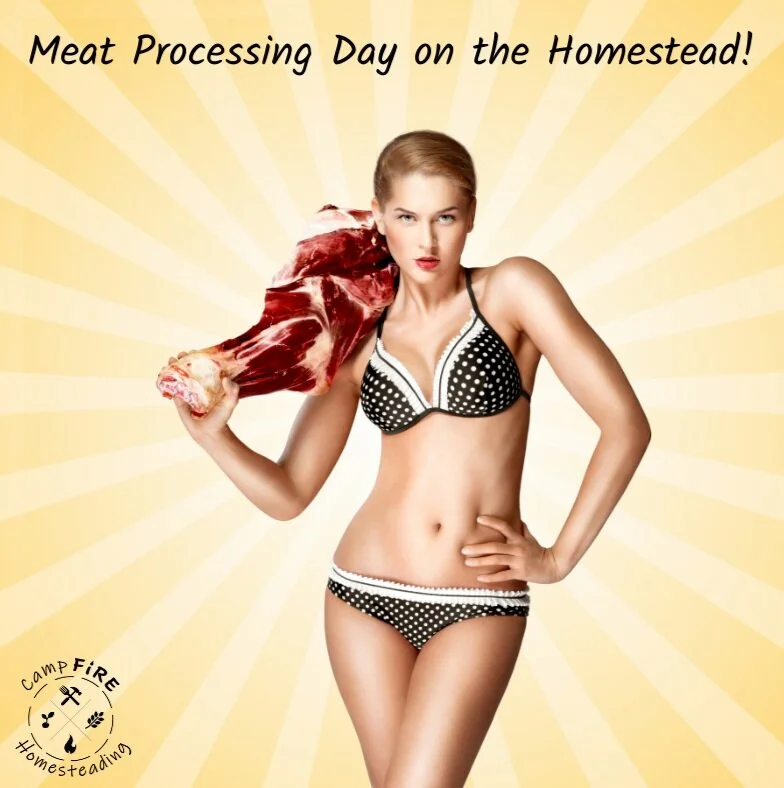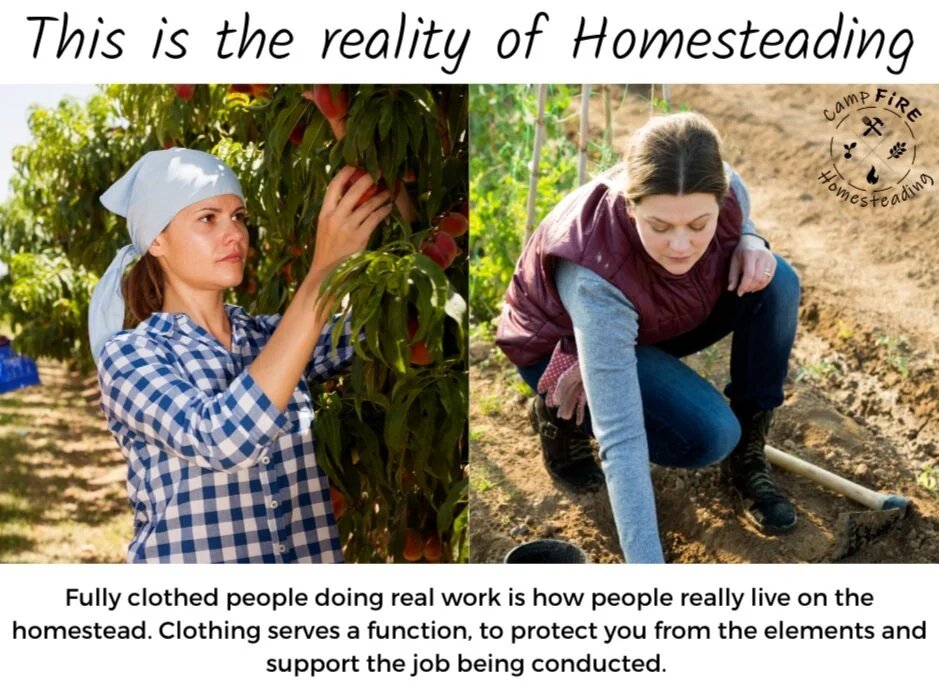Homesteading Infotainment: The Hollywoodification of the Homestead
If you are between the age of 30 and 50, you probably remember the days when any media that portrayed homesteading as pretty normal. For many, ‘Little House on the Prairie’ comes to mind. This was simply a family attempting to live off the land, withstand the elements, dealing with the crisis of the day, and trying to highlight important life lessons.
In today’s media landscape, a remake of little house on the prairie would probably not get the highest ratings. In the boardrooms of media corporations, there would probably be proposals to include more lude scenes. “Maybe Maw needs to have a secret romance interest in town,” a writer would suggest. “What if we include shots of Maw doing chores in yoga pants or boy shorts in sexually suggestive stances?” another writer would posit. “Yes, and Paw could cut firewood with his shirt off… we will just have someone oil him up for the female audience,” another executive states. An old, raspy voice at the head of the table speaks up, “That won’t be enough. There must be crisis. The audience must be concerned for the characters. They need to fear the potential loss of their characters.”
Although this hypothetical media meeting is simply to frame this article, are we not seeing this materialize before our eyes?
Oh… the focus is “Apple Harvest” …got it
If you are a fan of ‘Homestead Rescue’ or are a consumer of Homestead YouTubers, you know exactly what we are talking about.
What is driving this?
We don’t believe this is complicated. It’s the result of a media landscape that brainwashed people to believe that life should be constant drama, sexual tension, danger, and crisis. If it is not, your life must be boring. This is also the result of a populace that has been conditioned to seek fame, however they can get it. If it is not through being casted in a movie or TV show role in Hollywood, then through YouTube, Facebook, Instagram, Twitter, or other social media sites.
What is the result? Hollywood is dramatizing a way of life in way that is unrealistic and misrepresents homesteading. YouTube content creators, probably to monetize, have resorted to either trying to emulate their favorite HGTV personality, incorporating sexually suggestive content, making a crisis out of homestead events, and/or using extremely personal family information to increase clicks and views.
On the next Mission Homestead, Jack Hower must eliminate a new enemy that threatens his Chicken Coop.
We ask the question; who does this say more about, the content creators or the viewers?
Hollywood and its distasteful practices were probably always going to permeate down to independent content creators on YouTube. The fact that we see these types of practices is not all that surprising. In fact, when you look at the comments on the videos, even the viewers comment on the use of the aforementioned types of content. However, the number of views tell a different story. People want this type of content.
Today on the Modern Great Old Time Homestead…
The vast majority of Americans, or families in the Western world, are more morally conservative than we are led to believe. Morally conservative, in that they value the tenants of being a good person, being honest, being charitable, are protective of relationships, and value privacy concerning themselves and sensitive family information. In a 2000 study published in the Western Journal of Medicine concerning sexuality and the media, Gruber & Grube found that increased sexually explicit content in media did not supplant moral teachings from our parents. However, the data showed individuals would be more likely to consume media with sexually suggestive content.
This is fascinating. In essence, it is highly unlikely that people would invite someone into their homes and present themselves in a sexually suggestive manner, especially to strangers, but we are likely to seek out content where sexually suggestive content is prominently framed.
The point is, the viewers are the problem.
Imagine Joel Salatin had a YouTube channel and it was simply Joel Salatin being Joel Salatin. Those of you that follow his work understand what this means. It would be Joel Salatin in his overalls talking about permaculture, maybe harvesting some chickens, and promoting the importance of gravity fed water on his property. There would almost certainly be stories about how there was not usable land on his property 40 years ago and how regenerative agriculture repaired it. For us, this would be awesome!
For others, they would likely find it uninteresting. There would be no woman in yoga paints bending over to pull weeds, or posing in a video thumbnail that is intentionally framed to induce someone to click. There would not be a clickbait title such as, “Hawks are threatening the chickens, will they make it!?” There would be no videos about where Joel Salatin was capturing one of his children or grandchildren suffering from cancer or any other personal family event. His show would be about homesteading. Period.
Joel Salatin is great for people that seek information, not to be entertained. Although, his books and lectures are entertaining. If you need to see someone cut wood with their shirt off, Salatin is not for you. There are YouTube channels that will provide that for you.
There is something about us, the viewers, that are driving the demand of this type of content. The vast majority of people don’t want the straight forward, facts-based, information-driven Joel Salatin, which is why Hollywood or Netflix isn’t beating down Salatin’s door to sign a deal for a TV series. People want to be entertained more than they want to be informed, and the proof is in the numbers. Homesteaders that are strictly focused on homesteading receive fewer views than those that incorporate sexually suggestive, drama-based, and/or crisis-focused content.
As more and more people research homesteading as a way of living in today’s world, we are concerned that it is being sold as something it is not. Needless to say, there are also concerns that unstable people, watching regular content from young homesteaders that engage in using sexually suggestive images to promote their content, will travel to their homesteads. The reality is, you never know who you are entertaining!
Hey, I’m HomesteadloverX284! I’ve watched all of your videos on YouTube! Your homestead is amazing and I would love to see it in person…right now…I love you…
While perusing social media, we saw an instance where a popular homesteader in Tennessee had to rebuke a fan for suggesting that she would show up at her house, uninvited and unannounced. The reason? Because they person loved the Tennessee-based Youtuber so much! That is scary. What’s even worse is that the Tennessee homestead did not employ any of the aforementioned Hollywood tactics to garner views.
A popular off-grid living personality in Canada has experienced worse. In a video on YouTube, he addressed “security concerns” because people have just shown up to his property to meet him and see his house in the Canadian wilderness. Similar to the homesteader in Tennessee, this individual does not use click-bait tactics to increase viewership.
It is our hope that homesteading does not fall victim to Hollywood framing, misleading an entire generation about what the lifestyle is. We hope the content creators that portray homesteading in a realistic light and manner, rise to the top of social media.












